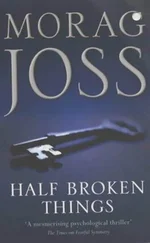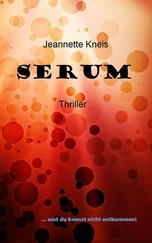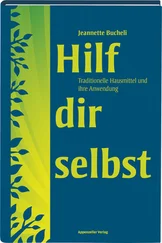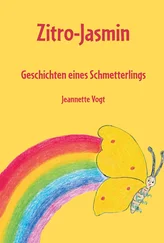Dad squeezed my shoulder. “Well, darling,” he said, “maybe the angel was you.”
WE HAD A HOMESTEADon Salt Draw, which flowed into the Pecos River, in the rolling gritty grassland of west Texas. The sky was high and pale, the land low and washed out, gray and every color of sand. Sometimes the wind blew for days on end, but sometimes it was so still you could hear the dog barking on the Dingler ranch two miles upriver, and when a wagon came down the road, the dust it trailed hung in the air for a long time before drifting back to the ground.
When you looked out across the land, most everything you could see-the horizon, the river, the fence lines, the gullies, the scrub cedar- was spread out and flat, and the people, cattle, horses, lizards, and water all moved slowly, conserving themselves.
It was hard country. The ground was like rock-save for when a flood turned everything to mud-the animals were bony and tough, and even the plants were prickly and sparse, though from time to time the thunderstorms brought out startling bursts of wildflowers. Dad said High Lonesome, as the area was known, wasn’t a place for the soft of head or the weak of heart, and he said that was why he and I made out just fine there, because we were both tough nuts.
Our homestead was only 160 acres, which was not a whole lot of land in that part of Texas, where it was so dry you needed at least five acres to raise a single head of cattle. But our spread bordered the draw, so it was ten times more valuable than land without water, and we were able to keep the carriage horses Dad trained, the milking cows, dozens of chickens, some hogs, and the peacocks.
The peacocks were one of Dad’s moneymaking schemes that didn’t quite pan out. Dad had paid a lot of money to import breeding peacocks from a farm back east. He was convinced that peacocks were a sure-fire sign of elegance and style, and that folks who bought carriage horses from him would also be willing to shell out fifty bucks for one of those classy birds. He planned to sell only the male birds so we’d be the sole peacock breeders this side of the Pecos.
Unfortunately, Dad overestimated the demand for ornamental birds in west Texas-even among the carriage set-and within a few years, our ranch was overrun with peacocks. They strutted around screeching and squawking, pecking our knees, scaring the horses, killing chicks, and attacking the hogs, though I have to admit it was a glorious sight when, from time to time, those peacocks paused in their campaign of terror to spread their plumes and preen.
The peacocks were just a sideline. Dad’s primary occupation was the carriage horses, breeding them and training them. He loved horses despite the accident. When Dad was a boy of three, he was running through the stable and a horse kicked him in the head, practically staving in his skull. Dad was in a coma for days, and no one thought he’d pull through. He eventually did, but the right side of his body had gone a little gimp. His right leg sort of dragged behind him, and his arm was cocked like a chicken wing. Also, when he was young, he’d spent long hours working in the noisy gristmill on his family’s ranch, which made him hard of hearing. As such, he talked a little funny, and until you spent time around him, you had trouble understanding what he said.
Dad never blamed the horse for kicking him. All the horse knew, he liked to say, was that some creature about the size of a mountain lion was darting by his flanks. Horses were never wrong. They always did what they did for a reason, and it was up to you to figure it out. And even though it was a horse that almost stove in Dad’s skull, he loved horses because, unlike people, they always understood him and never pitied him. So, even though Dad was unable to sit in a saddle on account of the accident, he became an expert at training carriage horses. If he couldn’t ride them, he could drive them.
I WAS BORN INa dugout on the banks of Salt Draw in 1901, the year after Dad got out of prison, where he’d been serving time on that trumped-up murder charge.
Dad had grown up on a ranch in the Hondo Valley in New Mexico. His pa, who’d homesteaded the land, was one of the first Anglos in the valley, arriving there in 1868, but by the time Dad was a young man, more settlers had moved into the area than the river could support, and there were constant arguments over property lines and, especially, water rights-people claiming their upstream neighbors were using more than their fair share of water, while downstream neighbors made the same claim against them. These disputes often led to brawls, lawsuits, and shootings. Dad’s pa, Robert Casey, was murdered in one such dispute when Dad was fourteen. Dad stayed on to run the ranch with his ma, but those disputes kept erupting, and twenty years later, when a settler was killed after yet another argument, Dad was convicted of murdering him.
Dad insisted he’d been framed, writing long letters to legislators and newspaper editors protesting his innocence, and after serving three years in prison, he was set free. Shortly after he was released, he met and married my mom. The prosecutor was looking into retrying the case, and Dad thought that would be less likely if he made himself scarce, so he and my mom left the Hondo Valley for High Lonesome, where they claimed our land along Salt Draw.
Lots of the folks homesteading in High Lonesome lived in dugouts because timber was so scarce in that part of Texas. Dad had made our home by shoveling out what was more or less a big hole on the side of the riverbank, using cedar branches as rafters and covering them over with sod. The dugout had one room, a packed earth floor, a wooden door, a waxed-paper window, and a cast-iron stove with a flue that jutted up through the sod roof.
The best thing about living in the dugout was that it was cool in the summer and not too cold in the winter. The worst thing about it was that, from time to time, scorpions, lizards, snakes, gophers, centipedes, and moles wormed their way out of our walls and ceilings. Once, in the middle of an Easter dinner, a rattler dropped onto the table. Dad, who was carving the ham, brought the knife right down behind that snake’s head.
Also, whenever it rained, the ceilings and walls in the dugout turned to mud. Sometimes clumps of that mud dropped from the ceiling and you had to pat it back in place. And every now and then, the goats grazing on the roof would stick a hoof clear through and we’d have to pull them out.
Another problem with living in the dugout was the mosquitoes. They were so thick that sometimes you felt like you were swimming through them. Mom was particularly susceptible to them-her bite marks sometimes stayed swollen for days-but I was the one who came down with yellow jack fever.
I was seven at the time, and after the first day, I was writhing on the bed, shivering and vomiting. Mom was afraid that everyone else might catch the disease, so even though Dad insisted that you got it from mosquitoes, he rigged up a quilt to quarantine me off. Dad was the only one who was allowed behind it, and he sat with me for days, splashing me with spirit lotions, trying to bring the fever down. While I was delirious, I visited bright white places in another world and saw green and purple beasts that grew and shrank with every beat of my heart.
When the fever finally broke, I weighed some ten pounds less than I had before, and my skin was all yellow. Dad joked that my forehead had been so hot he almost burned his hand when he touched it. Mom poked her head behind the quilt to see me. “A fever that high can boil your brain and cause permanent damage,” Mom said. “So don’t ever tell anyone you had it. You do, you might have trouble catching a husband.”
MOM WORRIED ABOUT THINGSlike her daughters catching the right husband. She was concerned with what she called “proprieties.” Mom had furnished our dugout with some real finery, including an Oriental rug, a chaise longue with a lace doily, velvet curtains that we hung on the walls to make it look like we had more windows, a silver serving set, and a carved walnut headboard that her parents had brought with them from back east when they moved to California. Mom treasured that headboard and said it was the only thing that allowed her to sleep at night because it reminded her of the civilized world.
Читать дальше









